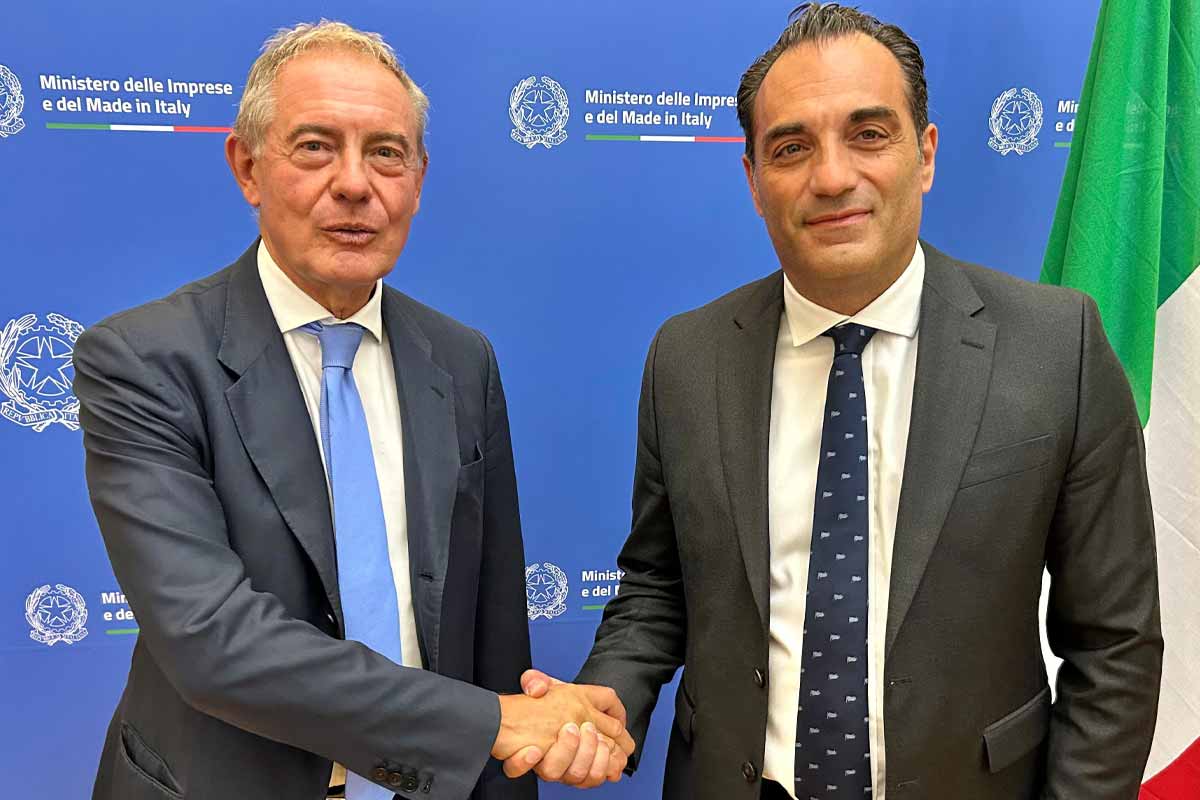
Just a few weeks after taking up his post, Antonio Filosa, the new CEO of Stellantisconfirms his straightforward style and his desire to turn the page on a sometimes conflictual past with Rome. After shaking up the European debate by declaring that the ban on sales of combustion-powered cars in 2035 was "unrealistic".He is pursuing his strategy of appeasement and repositioning in Italy.
Closer ties with Rome
Yesterday, September 8, Filosa travelled (by Maserati) to the Ministry of Enterprise and Made in Italy to meet Minister Adolfo Urso, in the presence of Anfia president Roberto Vavassori. The summit lasted almost an hour and a half, and ended with a clear statement from the leader: "The meeting was cordial, we must work together".
This simple but symbolic message marks a clean break with the tensions inherited from the Tavares era, when Stellantis was often accused by the Meloni government of neglecting Italy in favor of other markets.
The Dare Forward 2030 plan called into question
At the heart of the discussions was the future of the Dare Forward 2030 strategic plan, conceived under Carlos Tavares. Its aim was to make Stellantis a leader in electric mobility, with a target of 100 % electric vehicles by 2030 in Europe. At the Munich Motor Show, Jean-Philippe Imparato, Stellantis' head of Europe, declared this goal "unattainable".
"Most of the contents of the Dare Forward plan are still valid, but some will change", he acknowledged. In other words: total electrification will have to give way to a more pragmatic approach, integrating hybrids and other transition technologies, in line with market realities.
For Italy, a strategic hub
For the Italian government, the stakes are clear: guarantee automobile production and employment on its territory. The question of small cars, essential for the local market, was discussed at length. Rome and Stellantis want to push Brussels to adapt its rules to make it viable to produce affordable models in Italy, such as the future Fiat 500 hybrid at Mirafiori. The meeting also highlighted the need to review European regulations, deemed too rigid and potentially destructive for the industry.
After this first step, a new exchange is already planned. Filosa may even be invited to the Chamber of Deputies to present Stellantis' Italian vision. A strong signal that the manufacturer and the government are now seeking to move forward side by side.
In just ten weeks at the helm of Stellantis, Antonio Filosa has already changed his tone: critical of Brussels, attentive to Rome's demands, he has established himself as a pragmatic boss, keen to reconcile industrial strategy with political realities. A repositioning that could well restore Italy's central role in the Group's future, and open up a new phase of cooperation between Stellantis and the Meloni government.
For now, these are just words, and we need to move beyond the symbolic to the short-term reality of mass production of popular models in Italy. As far as I'm concerned, I can't see any concrete progress to date. As for the transition, Hyundai has in the last few hours presented the concept of a 4.30m compact sedan based on the Kia EV3 platform, i.e. offering a range of 600kms. It will go into series production next year in Turkey, at a price of around 30,000 euros.
Tra dire e fare, in mezzo ce il mare!
Stellantis needs help from the Italian government,